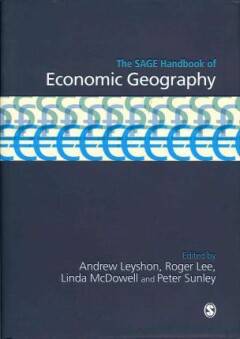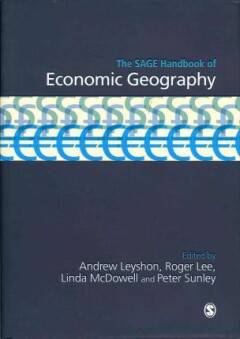
- Retrait gratuit dans votre magasin Club
- 7.000.000 titres dans notre catalogue
- Payer en toute sécurité
- Toujours un magasin près de chez vous
- Retrait gratuit dans votre magasin Club
- 7.000.0000 titres dans notre catalogue
- Payer en toute sécurité
- Toujours un magasin près de chez vous
Description
What difference does it make to think about the economy in geographical terms? The SAGE Handbook of Economic Geography illustrates the significance of thinking the ′economy′ and the ′economic′ geographically. It identifies significant stages in the discipline′s development, and focuses on the key themes and ideas that inform present thinking in economic geography.
Organized in sections with multiple chapters, The SAGE Handbook of Economic Geography is a complete overview of the discipline that critically assesses location, the quantitative revolution, the "new economic geography"; geographies of globalization - making sense of globalization and its consequences; the geography of capitalism; geographies of scale and place: local and global, space and place; geographies of nature: agriculture; sustainable development; the political ecology and the social construction of nature; geographies of uneven development: economic decline; technology; money and finance; geographies of consumption and services: formal and informal spaces of consumption; the culture industries; performance and geographies of regulation and governance: neo-liberalism, regulation, welfare.
Placing the discipline in vivid historical and contemporary context, The SAGE Handbook of Economic Geography is a timely, essential work for graduates, researchers and academics in economic geography.
Spécifications
Parties prenantes
- Auteur(s) :
- Editeur:
Contenu
- Nombre de pages :
- 432
- Langue:
- Anglais
- Collection :
Caractéristiques
- EAN:
- 9781848601147
- Date de parution :
- 30-03-11
- Format:
- Livre relié
- Format numérique:
- Genaaid
- Dimensions :
- 180 mm x 246 mm
- Poids :
- 907 g







